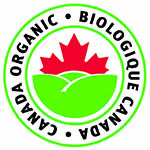
By Kasey Moctezuma and Roxanne Beavers
Requirements for product labels in both the U.S. and Canadian markets have been changing to reflect new rules for nutrition panels and allergens. Sometimes it seems the only constant in product labelling is change!
On January 15, 2019, the governing implementation regulation for the Canadian Organic Regime transitioned from the Canada Organic Products Regulations to the Safe Food for Canadians Regulation (SFCR), or Règlement sur la salubrité des aliments au Canada (RSAC), and specifically to Part 13 of this regulation, Organic Products.
Canada Update #1: Certificate Types
Most requirements of the Organic Products regulation remain the same. However, the Canadian Food Inspection Agency (CFIA) has added further clarity and consistency about both the types of certificates that can be issued and which entities must be certified to the updated version of the regulation. These specific parameters provide more transparency across the industry in Canada.
As a result, you may see your certificate types (certificate/packaging and labelling certificate/attestation) updated over the next few months, as we calibrate our systems based on this new guidance. Specifically, many operations previously on a packaging and labelling certificate or an attestation of compliance may be returning to an organic certificate, as they had been prior to 2015. Listing multiple products on one organic certificate is more consistent with other international organic schemes and should reduce duplication.
Canada Update #2: Brand-Owner vs. Copacker Certification on Product Labels
Under the CFIA guidance in Appendix C (section 9) of the Canada Organic Regime Operating Manual, brand owners are not required to be certified but may be certified.
If you have any questions or concerns please contact your Certification Project Manager or Kasey Moctezuma, International Specialist.
Canada Update #3: Changes to Non-Retail Product Labels
For the U.S. market, non-retail or bulk labels for organic products only need to have a lot code or other element that enables traceability. For the Canadian market, more detailed information is required on non-retail organic product labels.
QAI has been reassessing the requirements for non-retail organic product labels in Canada based on guidance from CFIA and changes to the Organic Product Regulations, which have been rolled into the Safe Foods for Canadians Regulations (SFCR).
For the Canadian market, QAI will be looking for the following information on your non-retail labels:
- Product name
- Organic status (organic, or 70-95% organic)
- Lot number or other element that allows traceability
- The words “Certified by QAI” or “Certified organic by QAI”, or the QAI mark
- For multi-ingredient products: a list of ingredients with organic ingredients clearly identified
- Name and place of business of the product manufacturer (or the entity for whom the product was made, like a brand-owner)
List numbers 4, 5 and 6 are requirements that may be missing from your current labels. QAI will work with you to ensure that labels are updated in a timely fashion as these changes are phased in.
If the Canada organic logo is used on an imported product, the term “Imported” or “Product of…” should be written in close proximity, just as it is for retail labels.
Non-retail labels don’t have to be bilingual; they can be in either French or English. However, if there is a chance that your product could be sold directly to consumers (e.g. a “warehouse-size” product that might be at a grocery store), you should ensure that you are following the retail label requirements.
We understand there are some exceptions to these rules for specific types of products, like unpackaged fruit or raw cuts of meat, or products sold only within a province.
Please contact with your Certification Product Manager for more information about how to ensure your labels for Canada are compliant.
